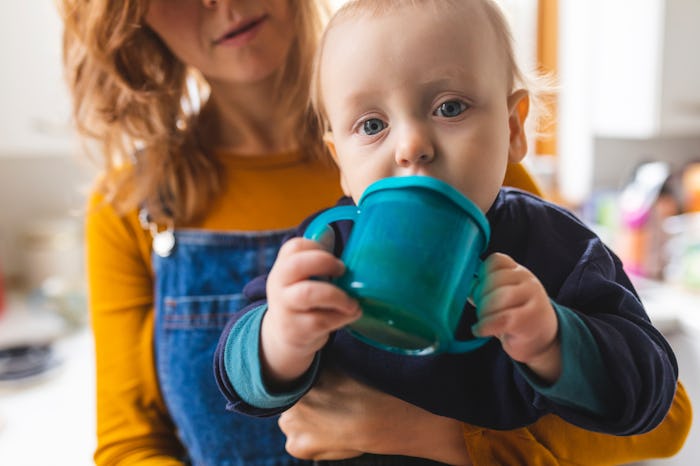Life

Here's How Co-Parents & Their Custody Orders Can Be Affected By The Pandemic
Dealing with visitation and custody arrangements can be infuriating at the best of times, but throw in a global pandemic like COVID-19, and well, it's officially a cluster. What are the laws? What happens to custody arrangements during a pandemic crisis? Who gets to decide?
With coronavirus sweeping the country at a ludicrous pace, cities and states are coming in fast with rules for self-distancing, closing schools, and the shuttering of restaurants and bars. The experts are saying that the best way we can prevent overloading our hospitals and healthcare systems is to stay home — with some municipalities entirely on lockdown. But when you share custody, whose home will have your kids? It turns out to be extremely complicated.
I have already spoken with several friends who are facing this very issue. They've been advised to self-quarantine with their children, but the second custodial parent is inflexible on custody. It's a hard position to be in — you want your child to have time with both of their parents, but you also want them to be as safe as possible. It's a sticky situation made stickier when you account for the unknown levels of risk being taken by the other parent in your absence.
Thankfully, while custodial law is frustrating and difficult to understand, there are attorneys who specialize in it that are here to help. I spoke with attorney and certified family law specialist Brian Blackham of Ghandi, Deeter and Blackham, a boutique law firm with a specialty in family law and custodial cases in Nevada, and he tells Romper that the Coronavirus quarantines and isolations are not everyday situations. Because of this, they must be treated with the utmost care and caution since the legalities are so precarious.
"Typically, custody and visitation orders identify specific days and times during which each parent is entitled to custodial time with their children," Blackham says. But this time is anything but typical. "Hypothetically, if a custody exchange cannot take place because of a restriction ordered by the government, the parent losing custodial time would likely be entitled to some makeup time with the children." Meaning if your ex has custody when your area goes into lockdown, or if they are legally mandated to self-isolate, it is likely that you would be able to make up that time on the back end.
Blackham says that he would hope that in this time of crisis that parents could amicably decide what is best, but he knows that's not always possible. So, in the event of a quarantine or isolation situation, he urges parents "to confirm that the government restriction truly prevents the custodial exchange from taking place before the parent declines to release the children to the other parent." Because, he notes that "it is possible — if not likely — that the government restriction provides for exceptions that would allow the exchange to go forward as required by the order, and therefore the failure of a parent to comply where compliance is possible could result in the parent being found in contempt of court, which could result in the imposition of fines, or possibly incarceration." He suggests talking to a family law attorney to find out what the regulations are. (Don't call your Uncle Vinnie. That only works in movies.)
Blackham says that this abundance of caution is "to ensure that you remain in compliance with your custody order, or if compliance is truly impossible, to ensure that you are well-prepared to defend your actions in court if called upon to do so." Because the last thing you need during a pandemic is a legal battle.
If you think you’re showing symptoms of coronavirus, which include fever, shortness of breath, and cough, call your doctor before going to get tested. If you’re anxious about the virus’s spread in your community, visit the CDC for up-to-date information and resources, or seek out mental health support. You can find all of Romper’s parents + coronavirus coverage here, and Bustle’s constantly updated, general “what to know about coronavirus” here.
Expert:
Brian Blackham, family law attorney with Ghandi, Deeter and Blackham